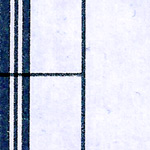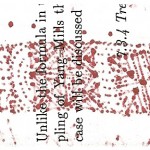 Niżej dwa cytaty z książki Janet Biehl „Rethinking Ecofeminist Politics”, wydanej w roku 1991, a więc nieco historycznej, ale interesującej. Tak, to w ramach poszukiwania takiego feminizmu, którego moja męska immunologia – a chciałbym myśleć, że po prostu ludzka – nie odrzuca. Nie mówię, że tym razem go znalazłem, póki co obserwuję swoje reakcje. Przy okazji polecam tekst „Naprawiając błędy ekofeminizmu” z Łajki. To jedno z niewielu miejsc ze śladem Biehl w polskojęzycznym internecie. I jeszcze coś w ramach poszukiwania koneksji – ten sam cytat, który wybrałem niżej, umieścił w swojej książce „Nonsense on Stilts: How to Tell Science from Bunk” (w rozdziale The Science Wars II: Do We Trust Science Too Little?) również Massimo Pigliucci, którego od dłuższego czasu podczytuję i podsłuchuję. Istotne, że dowiedziałem się o tym już po tym, jak dokonałem swojego wyboru cytatu. Biehl pisała tak: Czytaj dalej
Niżej dwa cytaty z książki Janet Biehl „Rethinking Ecofeminist Politics”, wydanej w roku 1991, a więc nieco historycznej, ale interesującej. Tak, to w ramach poszukiwania takiego feminizmu, którego moja męska immunologia – a chciałbym myśleć, że po prostu ludzka – nie odrzuca. Nie mówię, że tym razem go znalazłem, póki co obserwuję swoje reakcje. Przy okazji polecam tekst „Naprawiając błędy ekofeminizmu” z Łajki. To jedno z niewielu miejsc ze śladem Biehl w polskojęzycznym internecie. I jeszcze coś w ramach poszukiwania koneksji – ten sam cytat, który wybrałem niżej, umieścił w swojej książce „Nonsense on Stilts: How to Tell Science from Bunk” (w rozdziale The Science Wars II: Do We Trust Science Too Little?) również Massimo Pigliucci, którego od dłuższego czasu podczytuję i podsłuchuję. Istotne, że dowiedziałem się o tym już po tym, jak dokonałem swojego wyboru cytatu. Biehl pisała tak: Czytaj dalej
Archiwa tagu: english
The Experience of Animality in Culture, Science and Common Sense – konferencja w Warszawie (11-13.10.2012)
 Zapowiada się kolejna bardzo ciekawa konferencja poświęcona stosunkowi człowieka do reszty zwierząt: The Experience of Animality in Culture, Science and Common Sense. Zorganizowana zostanie przez Instytut Badań Interdyscyplinarnych „Artes Liberales” Uniwersytetu Warszawskiego. Odbędzie się w dniach 11-13 października 2012 r. w sali konferencyjnej Instytutu przy Dobrej 72 (obok Biblioteki Uniwersytetu Warszawskiego). Na specjalnej stronie konferencji można zapoznać się z programem, przeczytać abstrakty wystąpień i poznać prelegentów. Z opisu: Czytaj dalej
Zapowiada się kolejna bardzo ciekawa konferencja poświęcona stosunkowi człowieka do reszty zwierząt: The Experience of Animality in Culture, Science and Common Sense. Zorganizowana zostanie przez Instytut Badań Interdyscyplinarnych „Artes Liberales” Uniwersytetu Warszawskiego. Odbędzie się w dniach 11-13 października 2012 r. w sali konferencyjnej Instytutu przy Dobrej 72 (obok Biblioteki Uniwersytetu Warszawskiego). Na specjalnej stronie konferencji można zapoznać się z programem, przeczytać abstrakty wystąpień i poznać prelegentów. Z opisu: Czytaj dalej
Man makes the things out of himself (Vico)
Cytat
 It is noteworthy that in all languages the greater part of the expressions relating to inanimate things are formed by metaphor from the human body and its parts and from the human senses and passions. Thus, head for top or beginning; the brow and shoulders of a hill; the eyes of needles and of potatoes; mouth for any opening; the lip of a cup or pitcher; the teeth of a rake, a saw, a comb; the beard of wheat; the tongue of a shoe; the gorge of a river; a neck of land; an arm of the sea; the hands of a clock; heart for center (the Latins used umbilicus, navel, in this sense); the belly of a sail; foot for end or bottom; the flesh of fruits; a vein of rock or mineral; the blood of grapes for wine; the bowels of the earth. Heaven or the sea smiles; the wind whistles; the waves murmur; a body groans under a great weight. The farmers of Latium used to say the fields were thirsty, bore fruit, were swollen with grain; and our rustics speak of plants making love, vines going mad, resinous trees weeping. Innumerable other examples could be collected from all languages. All of which is a consequence of our axiom (120) that man in his ignorance makes himself the rule of the universe, for in the examples cited he has made of himself an entire world. So that, as rational metaphysics teaches that man becomes all things by understanding them (homo intelligendo fit omnia), this imaginative metaphysics shows that man becomes all things by not understanding them (homo non intelligendo fit omnia); and perhaps the latter proposition is truer than the former, for when man understands he extends his mind and takes in the things, but when he does not understand he makes the things out of himself and becomes them by transforming himself into them.
It is noteworthy that in all languages the greater part of the expressions relating to inanimate things are formed by metaphor from the human body and its parts and from the human senses and passions. Thus, head for top or beginning; the brow and shoulders of a hill; the eyes of needles and of potatoes; mouth for any opening; the lip of a cup or pitcher; the teeth of a rake, a saw, a comb; the beard of wheat; the tongue of a shoe; the gorge of a river; a neck of land; an arm of the sea; the hands of a clock; heart for center (the Latins used umbilicus, navel, in this sense); the belly of a sail; foot for end or bottom; the flesh of fruits; a vein of rock or mineral; the blood of grapes for wine; the bowels of the earth. Heaven or the sea smiles; the wind whistles; the waves murmur; a body groans under a great weight. The farmers of Latium used to say the fields were thirsty, bore fruit, were swollen with grain; and our rustics speak of plants making love, vines going mad, resinous trees weeping. Innumerable other examples could be collected from all languages. All of which is a consequence of our axiom (120) that man in his ignorance makes himself the rule of the universe, for in the examples cited he has made of himself an entire world. So that, as rational metaphysics teaches that man becomes all things by understanding them (homo intelligendo fit omnia), this imaginative metaphysics shows that man becomes all things by not understanding them (homo non intelligendo fit omnia); and perhaps the latter proposition is truer than the former, for when man understands he extends his mind and takes in the things, but when he does not understand he makes the things out of himself and becomes them by transforming himself into them.
Giambattista Vico ([1774] 1970) The New Science of Giambattista Vico. Tran. from the third edition by Thomas Goddard Bergin and Max Harold Fisch. Ithaca, NY: Cornell University Press. (wydanie polskie: Giambattista Vico: Nauka nowa. Tłum. Jan Jakubowicz. Oprac. Sław Krzemień-Ojak. Warszawa 1966)
Cytat za: John O’Neill, Five Bodies. Re-figuring Relationships, SAGE Publications 2004
